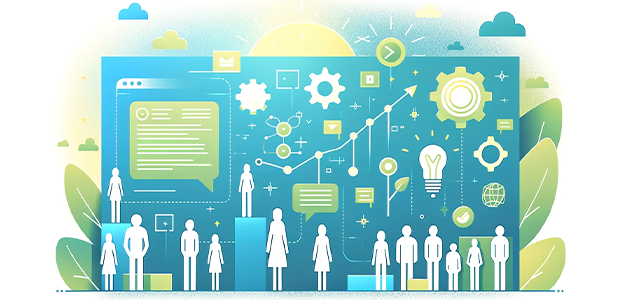
How live team coaching can help solve the skills gap
Hywel Carver, CEO of Skiller Whale, argues that you can’t hire your way out of this problem: companies need to look to at live team coaching to get the outcomes they need.
Skill Gaps have become an existential threat for many startups. Obviously, all startups are focused on growth but 2022 and 23 served as a sharp reminder that growth is not always linear, and that hiring is not always the right lever for achieving that growth. Startups need to be smart to achieve more productivity and innovation at lower cost.
Leaders are being pushed to do more with what they already have. That’s not helped by the rapid pace of technology – it’s estimated that the half-life of technical skills is already less than 2.5 years. That means that skills gaps are opening up within teams all the time, and competition is fierce for software engineers with the right niche of skills (e.g. deep expertise in AI and data science). After all, non-tech companies, such as those in retail and finance, now want those developers too. And remote working has meant local talent is being pursued by the whole world.
A 2023 Gartner survey found technology executives see the talent shortage as the most significant adoption barrier to 64% of emerging technologies, versus 4% in 2020. Not being able to utilise the right technology leads to delays, lower productivity, more errors, and the release of inadequate products. In turn, that leads to businesses being outcompeted by their rivals.
The tech startup sector is between a rock and a hard place, and something needs to change. By considering how skills are nurtured internally, startups and scaleups can start to overcome the barriers holding them back.
Live coaching can be an alternative to hiring
Startups have been addicted to hiring to advance their tech teams’ abilities. For most, that’s no longer a viable option. The sector needs a marked shift in favour of developing its current people in order to be agile, resilient and able to adopt new technologies with ease.
Live team coaching is an approach to learning that taps into the potential of a startup's existing people. It focuses on the specific needs and goals of an organisation, and the skills gaps of each person in a team. With regular coaching from a live expert, software engineers build a deep understanding and develop new capabilities through problem-solving and feedback. More innovative features are built faster, with higher quality code and fewer bugs. And the confidence and resilience of the team as a whole is improved. Technologies and targets that once seemed out of reach become achievable.
That has clear business benefits. With next-generation technologies, developers can work more productively and innovatively. AI, for example, can automate large parts of coding and debugging, leaving software engineers with more capacity for higher level work. Research by GitHub, which polled 90,000 developers in its most recent survey, found a third of developers say AI has increased their productivity and one in four are achieving greater efficiency.
Targeted learning can also help developers work smarter, removing bottlenecks and streamlining workflows. Almost two thirds (63%) of the developers GitHub surveyed spent more than 30 minutes a day searching for answers or solutions to problems and 53% agree they’re slowed down at work by waiting for answers. Imagine the uplift in productivity if they had access to targeted learning, which would bring solutions to those problems well within reach.
Upskilling with confidence
That’s what happened at Datamaran. The company has created a software analytics platform that identifies and monitors the risks and opportunities of ESG strategies, and they have been using live team coaching with its 20 developers for just over a year, with a particular focus on developing their skills in Python and JavaScript.
Datamaran’s CTO and co-founder Jérôme Basdevant has noted that it’s already had a big impact. Efficiency has improved significantly, and the team is now able to appropriately use more advanced coding patterns and practices in their work. Basdevant says they’re more autonomous now because he can trust them to write code in the right way. Plus the team has improved their understanding of the complexity of estimation, which has resulted in a more predictable workflow. He’s also been able to hire people from more diverse backgrounds and use live coaching to upskill them on the job.
Changing the mindset to continuous learning
In essence, startups must become comfortable with the fact that the skills gap is always widening - it simply goes with the territory when new companies are breaking new ground, disrupting whole industries, and using the latest technology to reshape the world. But it requires a long-term commitment to continuous learning to maintain that pace. The whole leadership team, not just the CTO, needs to find an ongoing continual solution, so that teams will reach their potential and achieve more. If managers change their mindset and adopt long-term and continuous learning, which is built into the working day, then their teams will have the ability to not just keep moving forward, but to accelerate.

